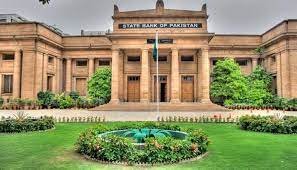Over the past decade, nations have taken drastically different paths in navigating the world of cryptocurrency. Some have embraced it, others resisted, and many remain undecided. Pakistan, however, now finds itself at a crucial turning point. With over 20 million active users and a predominantly young, digital-first population, the question is no longer if Pakistan will adopt crypto—but how wisely it can lead this transformation.
In 2025, Pakistan made headlines by formally stepping into the crypto space. The government’s creation of the Pakistan Crypto Council (PCC) and its outreach to global experts—such as Binance founder Changpeng Zhao (CZ) as a strategic advisor—signal that the country is no longer content being a passive observer. This is a landmark moment for Pakistan,stated Finance Minister Muhammad Aurangzeb. “We’re sending a clear message to the world: Pakistan is open for innovation.”
Why Crypto Momentum Is Surging in Pakistan
Pakistan’s crypto scene is booming at the grassroots level. With between 15–20 million users engaging with digital assets, the country ranks among the top adopters globally. Freelancers, locked out of mainstream payment services like PayPal, are embracing USDT and other stablecoins to receive instant, borderless payments. Peer-to-peer platforms such as Binance and OKX have become lifelines for retail traders and micro-investors. Meanwhile, online communities on YouTube, Telegram, and TikTok are educating millions—despite a lack of formal support.
This momentum has led to real policy action. In April 2025, the PCC signed multiple agreements, including a headline-grabbing deal with World Liberty Financial, a crypto firm aligned with former U.S. President Donald Trump. The signs are clear: Pakistan is positioning itself as a serious player.
Five Areas Where Crypto Can Transform Pakistan’s Economy
Bridging the Banking Gap:
More than 100 million Pakistanis remain unbanked, but not disconnected. Through mobile phones and DeFi tools, they can gain access to savings, credit, and remittances—without ever setting foot in a traditional bank.
Empowering Freelancers:
Ranked 4th globally in freelance talent, Pakistan earned over $1 billion through freelancing in 2024. Yet, local professionals face barriers like high bank fees and slow payments. Crypto—especially stablecoins like USDC—can provide fast, secure alternatives.
Disrupting the Remittance Model:
Pakistan received $34 billion in remittances in 2024. Traditional methods cost up to 7% in fees and take days. Crypto remittances, using platforms like Strike or USDC apps, promise near-instant transfers with minimal costs.
Becoming a Blockchain Innovation Hub:
With 60% of its 240 million citizens under age 30, Pakistan has the ideal demographic for Web3 development. Transparent regulations could attract global investors and drive innovation in areas like real estate tokenization, NFTs, and crypto R&D zones.
5. Monetizing Surplus Energy Through Bitcoin Mining:
In 2025, Pakistan initiated plans to channel excess electricity to Bitcoin mining and AI data centers in energy-rich areas like KP and Gilgit-Baltistan—a strategy aimed at boosting FDI and creating jobs in underdeveloped regions.
Risks Pakistan Must Navigate
Despite the potential, challenges remain. Legal uncertainty continues to haunt crypto exchanges. Bank account freezes, scams, and Ponzi schemes persist due to weak regulations and limited financial literacy. On top of that, religious concerns about the Shariah compliance of digital assets are still unresolved.
Learning from Global Case Studies
The global crypto landscape offers valuable lessons. The UAE flourished by creating a well-defined regulatory environment. El Salvador, while bold in adopting Bitcoin as legal tender, failed to build grassroots understanding. Nigeria’s ban on crypto drove activity underground. The Philippines, on the other hand, struck a balance—embracing crypto-based remittances and play-to-earn economies with strong central bank support.
Pakistan can’t afford to repeat mistakes made elsewhere.
How to Get It Right
To lead this digital shift, Pakistan must:
- Finalize clear crypto regulations via the PCC.
- Involve Islamic scholars to address faith-based concerns.
- Launch nationwide awareness campaigns, especially through platforms like TikTok and YouTube in Urdu.
- Legalize and streamline crypto payments for freelancers and remittances.
- Establish sandbox zones for startups to innovate safely.
- Explore the launch of a PKR-backed stablecoin for domestic use and welfare payments.
Pakistan is opening its doors to the future of finance, said Bilal Bin Saqib, CEO of the PCC. “And who better to guide us than CZ—a pioneer who reshaped global finance.
Pakistan doesn’t need to build the next Ethereum or compete with Silicon Valley. But by investing in the right regulations, education, and infrastructure, it can claim a unique position in the global crypto economy. The window of opportunity is wide open—and the world is watching.



